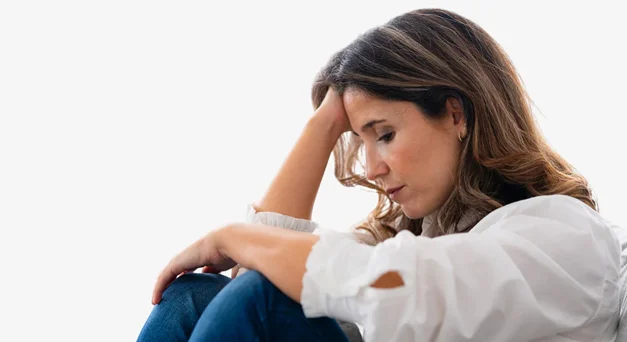Obsessive-compulsive disorder (OCD) is a mental disorder that affects a person's thoughts and behavior, causing them to repeatedly experience certain unwanted thoughts, which in turn cause anxiety and stress.
Therefore, the affected person resorts to performing compulsive actions and behaviors to alleviate this stress. There are several types of OCD and also effective ways to treat it, which is what we will learn about in this article.
What is Obsessive-Compulsive Disorder
It is a mental disorder related to anxiety and stress, characterized by the presence of intrusive thoughts (obsessions) that drive the person to perform repetitive actions (compulsions) in order to reduce the anxiety.
The affected person knows that these obsessions are illogical, but they cannot ignore them because this increases their distress. Therefore, these actions are considered mandatory to alleviate this distress.
Symptoms of Obsessive-Compulsive Disorder

The symptoms of OCD vary from person to person, but the main symptom is the presence of recurring obsessive thoughts and compulsive actions, including:
Symptoms of Recurring Obsessive Thoughts:
- Excessive fear of dirt.
- Fear of infection and contracting diseases.
- An excessive need for order and organization.
- Fear of causing harm to oneself or others.
- Constant doubt about turning off appliances or locking the door.
Symptoms of Compulsive Actions:
- Repeatedly checking and verifying things.
- Arranging and organizing things in a precise manner.
- Excessive hand washing or showering.
- Continuously counting while performing daily tasks.
- Feeling the need to perform the same tasks multiple times.
- Avoiding shaking hands with others or touching objects.
Causes of Obsessive-Compulsive Disorder
The exact causes of OCD are unknown, but there are factors that contribute to its development, such as:
- Genetic predisposition. Chemical changes in the brain.
- Having other mental disorders.
- Exposure to severe psychological stress.
- Exposure to traumatic events in childhood.
Types of Obsessive-Compulsive Disorder
The types of obsessive-compulsive disorder vary depending on the nature of the thoughts or behaviors that control the patient, including:
- Doubt obsession.
- Cleanliness obsession.
- Obsession with aggressive thoughts.
- Obsession with order and organization.
- Obsession with hoarding.
When should you see a doctor
You should see a doctor if symptoms of obsessive-compulsive disorder appear and become persistent, or cause shortness of breath and persistent anxiety attacks, or if the person is unable to control them.
Or if symptoms of depression or negative thoughts accompany the obsession, or when it becomes difficult to perform daily activities or go to work or school.
Methods of treating obsessive-compulsive disorder
Treatment methods for obsessive-compulsive disorder vary depending on the severity of the case, and include:
- Medication.
- Behavioral therapy.
- Psychotherapy.
- Electroconvulsive therapy.
What are the possible complications of obsessive-compulsive disorder

If obsessive-compulsive disorder is not treated in a timely manner, it may lead to serious complications such as:
- Isolation and social withdrawal.
- Self-harming tendencies.
- Physical exhaustion.
- Chronic anxiety.
- Chronic depression.
Medications for treating obsessive-compulsive disorder
Medications are used under medical supervision and prescription to determine the appropriate type of medication for the condition and the dosage used, including:
- Sertraline.
- Fluoxetine.
- Paroxetine.
- Clomipramine.
- Fluvoxamine.
Frequently Asked Questions about Obsessive-Compulsive Disorder
Is it possible to completely recover from obsessive-compulsive disorder
Yes, obsessive-compulsive disorder (OCD) can be completely cured in some cases with adherence to behavioral and pharmacological treatment.
What are the most dangerous types of OCD
The most dangerous types of OCD are those that lead to dangerous behaviors that harm the patient and those around them or expose them to harm.
How to get rid of OCD without medication
OCD can be overcome by adhering to behavioral therapy and regularly practicing relaxation exercises.
Article Summary
Obsessive-compulsive disorder (OCD) is a mental disorder that affects people, and its symptoms appear in the form of obsessive thoughts and compulsive actions that the patient performs to reduce anxiety.
The causes and types of OCD vary, as do the treatment methods, which include medication and behavioral therapy, determined by the doctor based on the patient's condition.